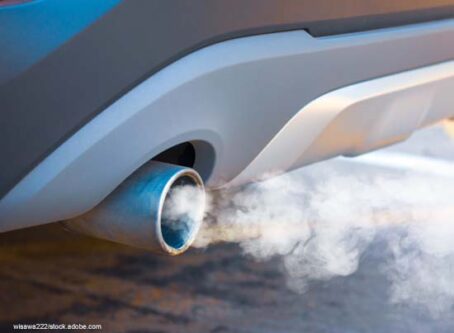Senate Democrats’ infrastructure plan uses ‘tax giveaways for the wealthy’
Unimpressed with both the tax reform and the White House’s proposed infrastructure bill, Senate Democrats have released their own infrastructure plan that solves both problems. The plan claims to invest more than $1 trillion in direct federal funds and add 15 million jobs by reversing some provisions in the recent tax reform that affects the wealthiest Americans.
The Senate Democrats’ Jobs and Infrastructure Plan for America’s Workers takes a different approach to the issue than President Donald Trump’s proposal. Most notably, there is more than $1 trillion in direct federal funding, cutting out the need for private investments such as tolling.
Funding will come from reversing several provisions in the Tax Cuts and Jobs Act of 2017 that benefited only the wealthiest American individuals and companies, according to the plan.
Funding
Last year, Republicans passed a $1.5 trillion tax cut for large corporations and the top 1 percent, the proposal points out. Democrats want to reverse five of those provisions and direct the savings to infrastructure.
- Restore top individual tax rate to 39.6 percent ($139 billion over 10 years) – The tax reform reduced the tax rate to 37 percent and raised the income threshold to $500,000 for individuals, a break Democrats say is solely for the 1 percent.
- Restore 2017 alternative minimum tax ($429 billion over 10 years) – This ensures that high income taxpayers cannot abuse the tax system with deductions and loopholes. Before tax reform, the first $54,300 were exempt for individuals, with exemptions phased out at 25 percent for those earning more than $120,700. Tax reform increased both the exemption levels and the income threshold at which the exemptions phase out.
- Restore 2017 estate tax ($83 billion over 10 years) – According to the proposal, fewer than two of 1,000 estates were affected before the reform, when estates worth less than $11 million were fully exempt. Tax reform doubled that exemption to $22 million.
- Close the carried interest loophole ($12 billion over 10 years) – Democrats claim this loophole allows Wall Street to disguise their compensation income as capital gains.
- Bring the corporate tax rate to 25 percent ($359 billion over 10 years) – Currently, the corporate tax rate is set at 21 percent. Previous bipartisan proposals ranged from 24 to 28 percent. Democrats are saying that the current rate relies on trickledown economics, which they claim is a failed theory.
In total, $1.022 trillion would be raised for infrastructure spending through the Senate Democrats’ proposed tax reform changes. So where will all that money go?
A good chunk of that money will go toward road and bridge repair, approximately $140 billion. Of that money, $97 billion in direct federal spending will go to the federal-aid highway program, $3 billion in additional funding for the Federal Lands and Tribal Transportation program and $40 billion for a new Bridge Investment Program.
A significant topic that was not directly addressed in the White House’s proposal was the Highway Trust Fund, which is quickly drying up. The Democrats’ proposal includes $140 billion to ensure the solvency of the Highway Trust Fund for the next 10 years.
Another $10 billion will be allocated to expand TIGER grants. Remaining funding dollars will go to projects in these categories:
- $115 billion to modernize water and sewer systems
- $115 billion to repair and improve public transportation
- $50 billion to modernize rail infrastructure
- $40 billion for the Vital Infrastructure Program (megaprojects)
- $30 billion to revitalize Main Street and promote innovative transportation (includes $3 billion for charging and refueling infrastructure for electric vehicles and alternative fuel vehicles)
- $62 billion for neighborhood revitalization, lead remediation and affordable housing
- $50 billion to rebuild America’s schools (close funding gaps)
- $30 billion to modernize ports and waterways
- $40 billion to improve airports and airspace
- $25 billion build more resilient communities (natural disasters)
- $80 billion to bring innovation to energy grid (research, resilience programs, cybersecurity, modernization)
- $40 billion to provide universal high-speed internet (mostly to rural areas that do not have access)
- $15 billion to address construction backlog on public lands
- $10 billion for tribal infrastructure
- $10 billion to address Veterans Affairs construction backlog and other infrastructure critical to our nation’s heroes
- $20 billion for innovative financing tools (establishes Infrastructure Financing Authority, protect/expand existing federal financing programs like TIFIA, flexibility among state/local governments by eliminating arbitrary tax barriers for projects).
Buy America requirements
In addition to funding, the proposal also expands many of the Buy America rules already in place. One provision will establish a Buy America preference policy for all federally financed infrastructure projects. Currently, some projects are exempt or require annual renewal.
Another provision will expand the scope of materials subject to Buy America rules. Current rules only apply to iron and steel. Proposed expansion will also include nonferrous metals (for example, copper), plastic and polymer based products (for example PVC pipe, composite building materials), concrete and other aggregates, glass (including optic glass to cover broadband deployment), lumber, and drywall.
Buy America waivers also will require public disclosure. This is expected to reduce the amount of waivers and establish new standards.
Creation of good-paying American jobs
Much like President Donald Trump’s proposal, Senate Democrats also promise more jobs for Americans. Most of the language in the proposal offers protections to disabled workers and protects workers from unfair labor standards.
Under the proposal, infrastructure projects should include the hiring of workers with disabilities by requiring 14 percent of a company’s workers to be people with disabilities, consistent with current federal hiring practices.
Companies bidding on a federally funded infrastructure project must disclose previous violations of workers’ rights under federal labor, employment, and civil rights law. Those who have a shady past will either be turned down or must commit to reforming their practices. Furthermore, companies receiving federal funding cannot interfere with workers’ decision to join a union or otherwise negotiate.
Protecting wages, workers on infrastructure projects should be paid at least the locally prevailing wages for their work. Those working more than 40 hours a week and earning less than $48,412 a year should be guaranteed overtime pay.
The proposal also seeks to provide education and training opportunities for infrastructure-related jobs. This is similar to a provision in Trump’s proposal.
Small businesses
Senate Democrats included a section to specifically aimed to protect small businesses. Democrats want 33 percent of new infrastructure contracting dollars to go to small businesses. Additionally, 33 percent of all large contracts should be contracted to small businesses as well.
Democrats also want to increase the ability of small businesses to obtain surety bonds. To do this, they are seeking to increase the ceiling to $10 million and index the ceiling to inflation.









